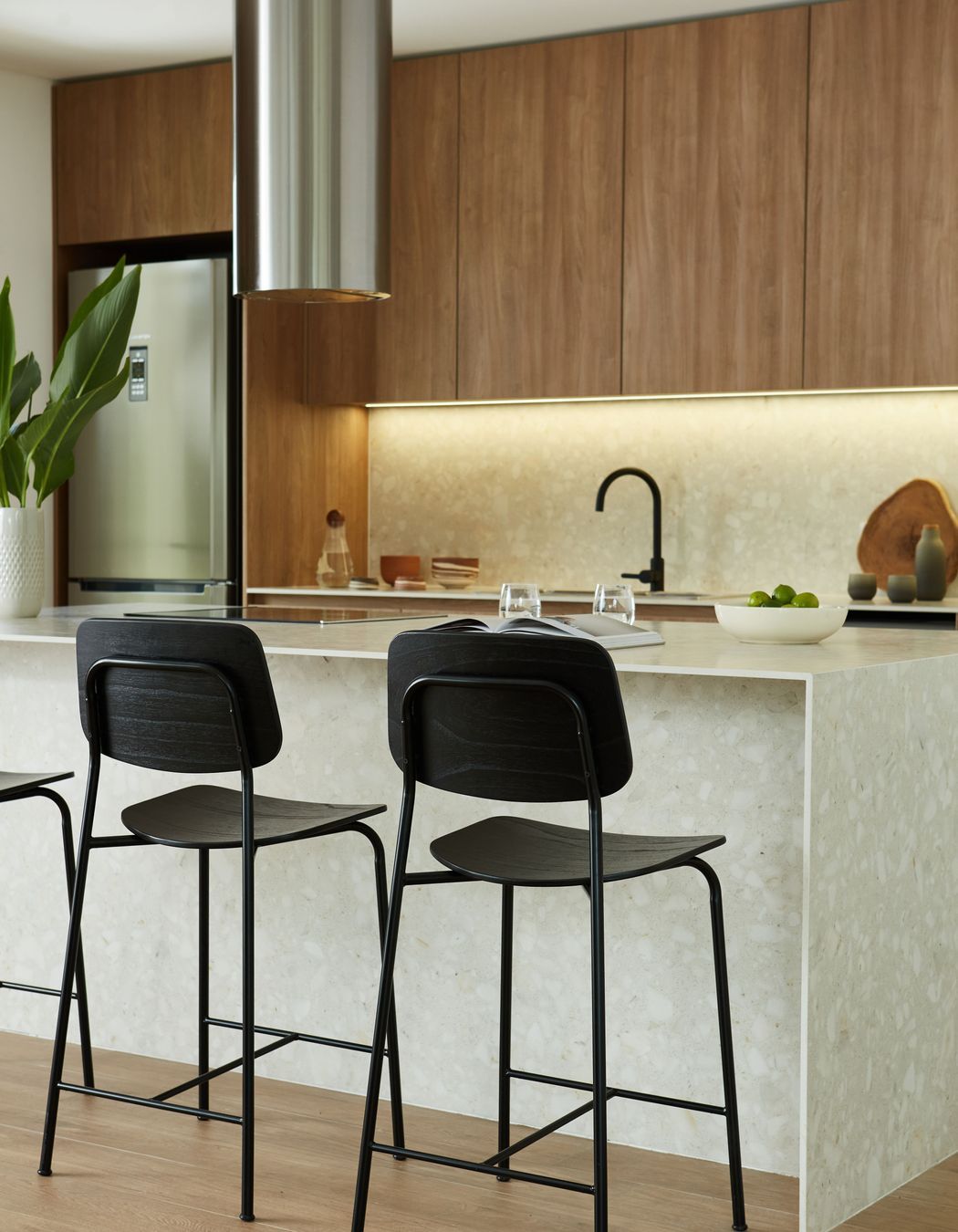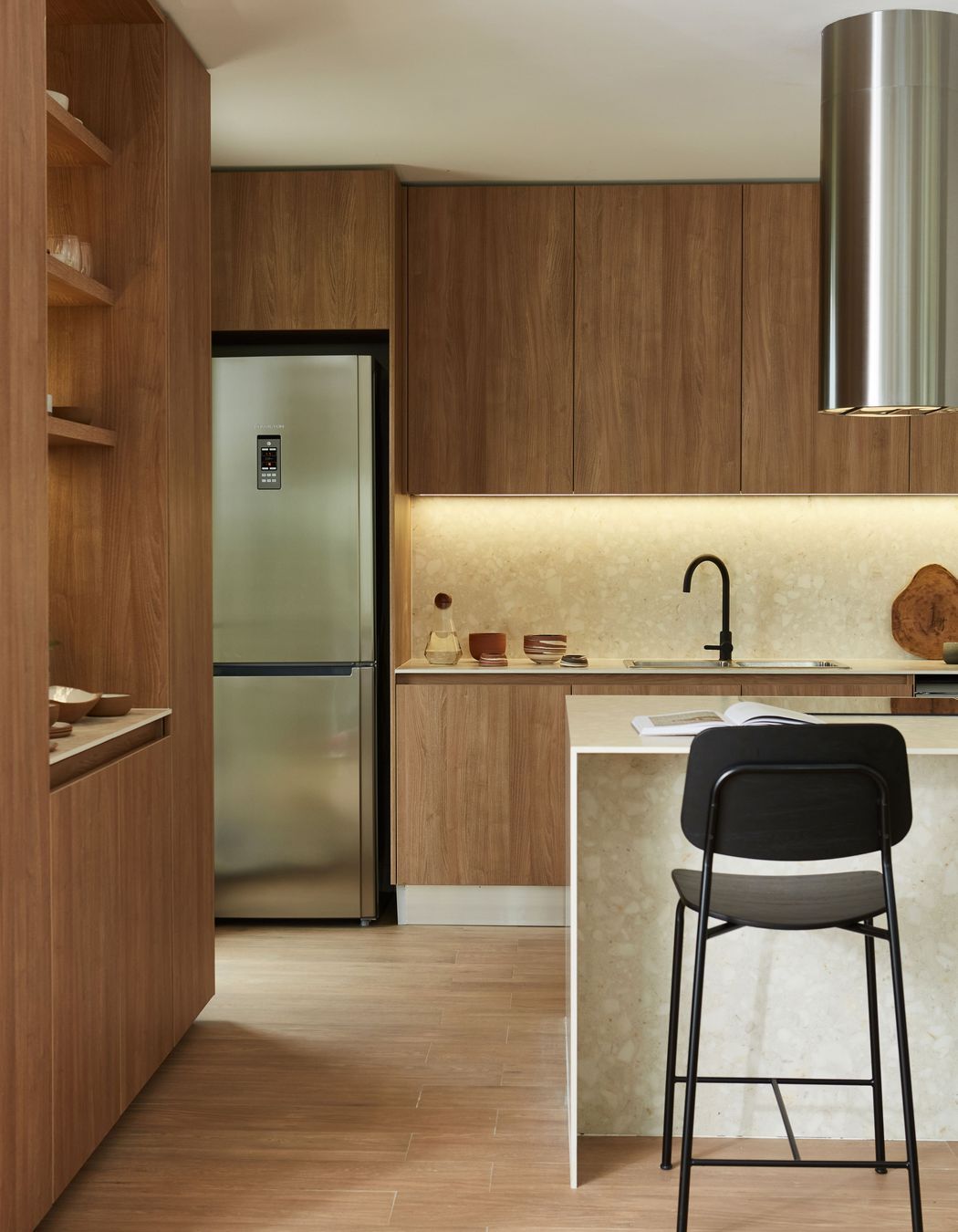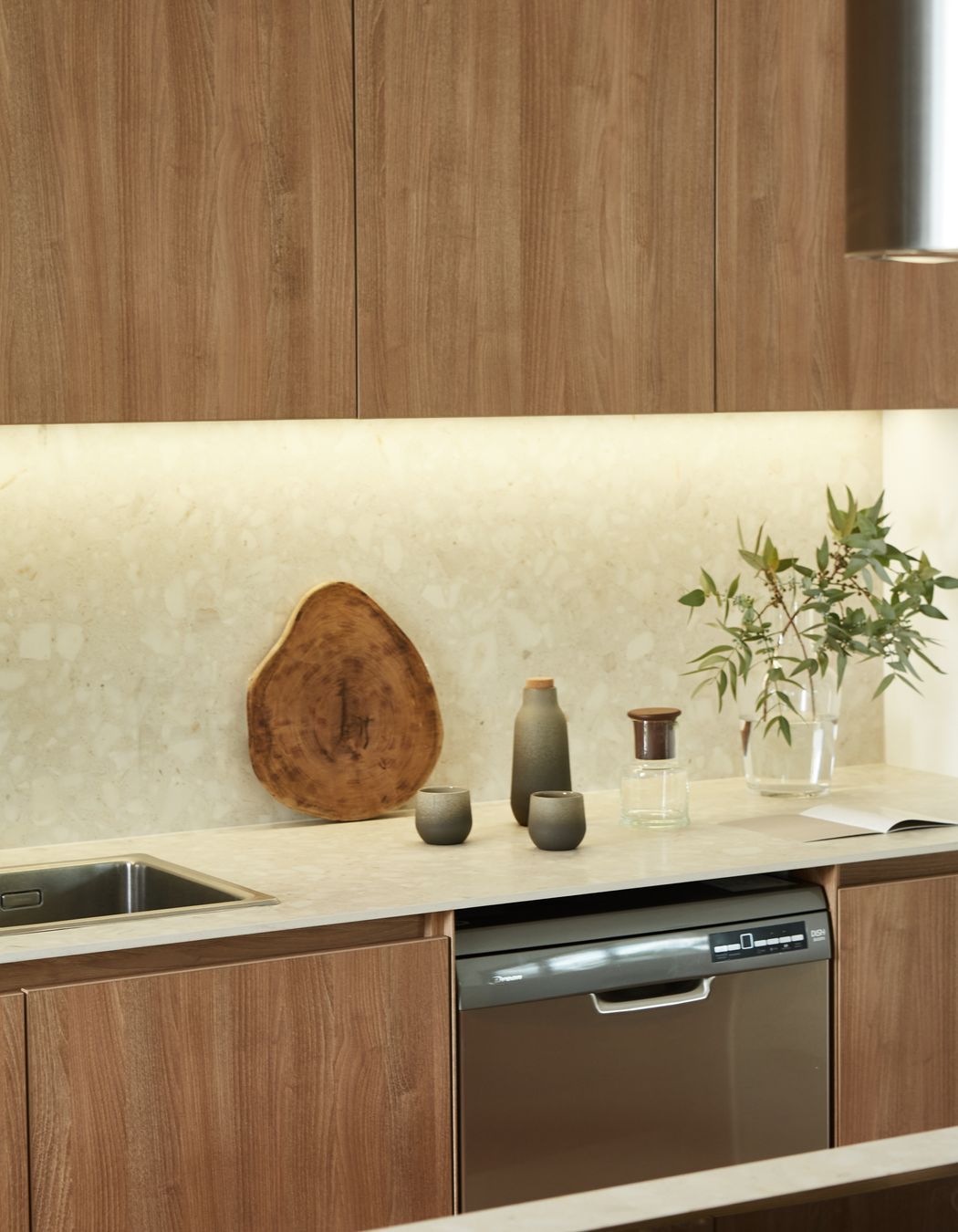Going Green: How to

Design for longevity
When designing your kitchen, plan for your needs now and in the future when it
comes to elements like storage, bench space, meals areas and charging stations.
It’s wise to take a long-term view when it comes to aesthetics too; choose colours and cabinetry that speak to your sense of style so you’ll love your kitchen for years to come. And bear in mind; timeless cabinetry profiles and neutral tones tend to have more staying power than uber-fashionable ones, which can quickly date.
Choose materials wisely
An eco-friendly kitchen starts with sustainable materials. When looking at materials for your benchtops and splashbacks, consider how they are made, whether they are durable and practical enough to last the distance, if they have been produced in carbon-neutral conditions, and whether they can be recycled or repurposed at the end of their use.
Neolith high-performance sintered stone surfaces are a sustainable, beautiful and healthy option for kitchens. Fully recyclable and made from 100 per cent natural materials in carbon-neutral conditions, they are considered the most durable and environmentally architectural surfaces on the market for indoor and outdoor environments. Neolith surfaces can withstand water, heat, scratches, stain and UV radiation, which means they will look great and perform brilliantly in your kitchen for decades.


Go low- to no-VOC
Paint, composite wood products, flooring, resins and adhesives can all contain toxic chemicals that, once installed in your home, release ‘off-gas’ VOCs (volatile organic compounds), which are known to be harmful to human health.
For a safer alternative, seek out materials for your kitchen with low or no VOC content. These include low- or no-VOC paint, eco-friendly surfaces made from natural materials such as Neolith sintered stone, low-emission E1-grade MDF or plywood, solid timber or bamboo carcasses made with chemical-free glues, and reclaimed timber, cork or linoleum flooring.
Include passive design features
If you’re embarking on an extensive kitchen renovation, now’s the time to include passive design features that will lower your power bills and make your kitchen a more pleasant place to be.
Maximise ventilation and natural light with well-placed windows, incorporate shading, such as an awning or planting, to optimise winter sun and block out harsh summer sun (which reduces your reliance on artificial heating and cooling), and consider adding a skylight for that extra daylight boost.

About Neolith
Established in 2009, Neolith is the world’s leading sintered stone brand.
Neolith sintered stone is an innovative and environmentally friendly architectural surface crafted from 100 per cent natural raw materials, including clays, feldspar and natural mineral oxides, 98 per cent of which are recycled. Bonded with heat rather than resins, Neolith sintered stone contains minimal amounts of silica of between 0 and 9 per cent, depending on colour, compared with levels of up to 97 per cent for engineered stone.
As a brand, Neolith is passionately committed to environmental responsibility at every stage, from design and production to installation. Up to 52 per cent of every Neolith slab is made from recycled raw materials and the slab can be fully recycled and reduced to its aggregates at the end of its life cycle.
Neolith was the first company in its sector to achieve full carbon neutral status in 2019. It uses 100 per cent renewable electricity, up to 100 per cent of water consumed is recycled and 90 per cent of waste generated is recycled.
